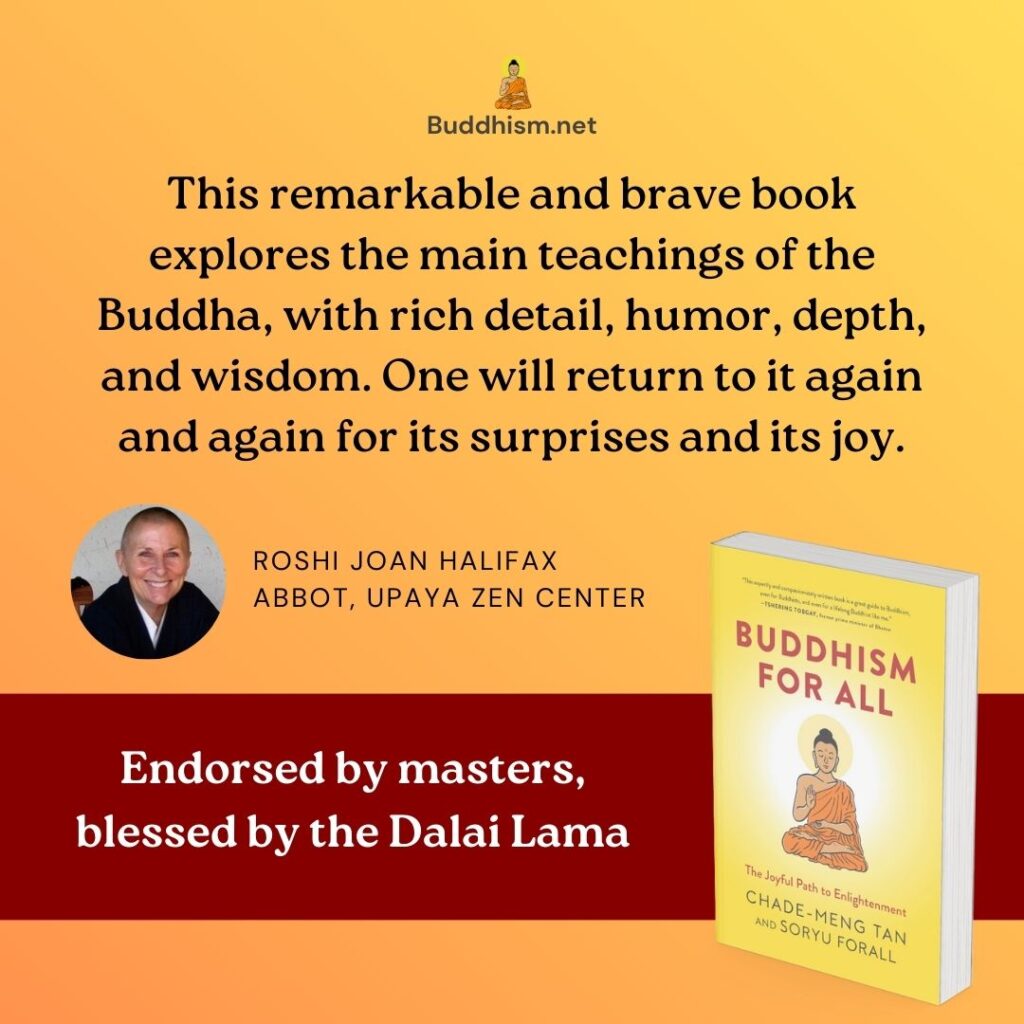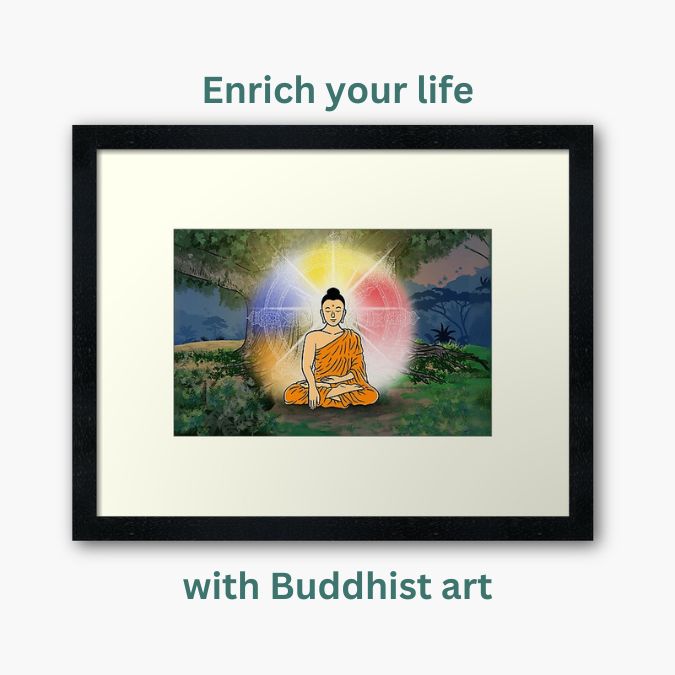
Siddhattha became the Buddha at the age of thirty-five. He taught for the next forty-five years or so until he was eighty. At the ripe old age of eighty, he passed away, or more accurately, he entered final nirvana. His last days were documented in an unusually long discourse in the canon called the Great Discourse on the Final Nirvana (Mahāparinibbāna Sutta).[1] This discourse is also unusually heavy with mystical elements that you seldom see in the rest of the early canonical texts.
By this time, the Buddha was very old and his physical body was falling apart and causing great pain. It’s useful to remember that for most of history, eighty was a rare old age. In the absence of modern medicine, it is not surprising for anybody at the age of eighty to feel his body is falling apart. That, plus the six years the pre-Buddha Siddhattha spent torturing his own body probably did not help. The Buddha commented, perhaps half-jokingly, that his body was “like an old cart that can keep going only because it is held together by straps.”
At this point, the Buddha must have felt confident that the Dharma will continue after him. We know that because in one of the mystical parts of this discourse, Mara went to the Buddha and said to him, “You previously said that you would not take final nirvana until you have established communities of male and female monastic disciples, and male and female lay disciples, who are accomplished, trained, skilled, learned, knowers of the Dharma, who will pass on what they have gained from their Teacher, who can teach it skillfully, and who can refute false teachings that have arisen. Well, you did all that. It’s now time for you to go.”[2] The Buddha told Mara, “Relax, Evil One, you don’t have to wait long, the Realized One will pass into final nirvana in three months.” After Mara left, the Buddha sat mindful and fully aware, and surrendered his life force. The earth shook and thunder cracked the sky. The Buddha spoke joyfully in verse:
Weighing up the incomparable against an extension of life,
the sage surrendered the life force.
Happy inside, serene,
he burst out of this self-made chain like a suit of armor.[3]
The Buddha’s last meal is a subject of endless debate. He accepted a meal from a man called Cunda the smith. Cunda offered the Buddha a dish called “pig’s delight”. Historians and scholars have debated endlessly whether that was a pork dish, or a mushroom dish, or something else (for example, soft boiled rice with meat). In any case, it is possible that the food was accidently tainted (perhaps somebody picked a poisonous mushroom by mistake, perhaps pork wasn’t properly cooked) and that maybe the Buddha knew because he made the unusual request to Cunda to serve that dish only to himself, and not to any others.
After that meal, the Buddha became severely ill with bloody dysentery and dreadful pains, all of which he experienced mindfully, free from mental suffering. He wanted to make sure that Cunda did not feel bad about serving him his last meal, so he told Ānanda to tell Cunda, “You are very fortunate, friend Cunda, to serve the Exalted One his last meal. I have heard from the Exalted One’s own lips that two meal offerings lead to equal great merits: the meal which, after eating, the Exalted One gained full enlightenment, and the meal just before his final nirvana. You are so lucky!”
At this point, the Buddha was in the town of Kusinārā. As it became increasingly clear that the Buddha’s passing was very imminent, Ānanda started crying. The Buddha chided him gently, “Ānanda, do not cry. Have I not already taught you that all things that are pleasant and delightful are impermanent and subject to separation? So how could it be, Ānanda, that whatever is born should not pass away?”
As the Buddha lay dying, he said to Ānanda and all the monks present, “After I pass, you may think, ‘We have no teacher!’ It should not be like this. After my passing, the Dharma and the discipline (dhamma-vinaya) I taught you shall be your teacher.”
Finally, the Buddha spoke his last words.
“Now, monks, I declare to you:
all conditioned things are of a nature to decay — strive on untiringly.”[4]
“handa dāni, bhikkhave, āmantayāmi vo,
vayadhammā saṅkhārā appamādena sampādethā”ti.
Having said his last words, the Buddha moved through the jhānas one last time. He entered the first jhāna, and then went into the second jhāna, and then made his way up the successively subtler jhānas all the way to the base of neither-perception-nor-non-perception. After that, he made his way back down all the way to the first jhāna. And then he made his way back up again to the fourth jhāna. From there, he passed into final nirvana.
And with that, my teacher passed.
Activities
- Reflect on this post with Angela:
- We could take heed from the Buddha’s last words “all conditioned things are of a nature to decay — strive on untiringly”, and commit to strive diligently and make the efforts to practice virtue, meditation and wisdom. Keep practicing the noble eightfold path. Cultivate the right view that all conditioned phenomena are of a nature to decay.
- What are your reflections from the last teaching of the Buddha?
- What are your reflections from the life of the Buddha?
- If you could make a commitment to live a worthy life, based on the teachings of the Buddha, what would that be?
References
[1] Dīgha Nikāya 16.
[2] Edited from Dīgha Nikāya 16, not an exact quote.
[3] Sujato’s translation, https://suttacentral.net/dn16/en/sujato
[4] Maurice Walshe’s translation. Soryu has a translation that is less literal, but also more readable: “Everything that comes together falls apart – urgently and sincerely realize your goal.”
Artwork by Colin Goh.


